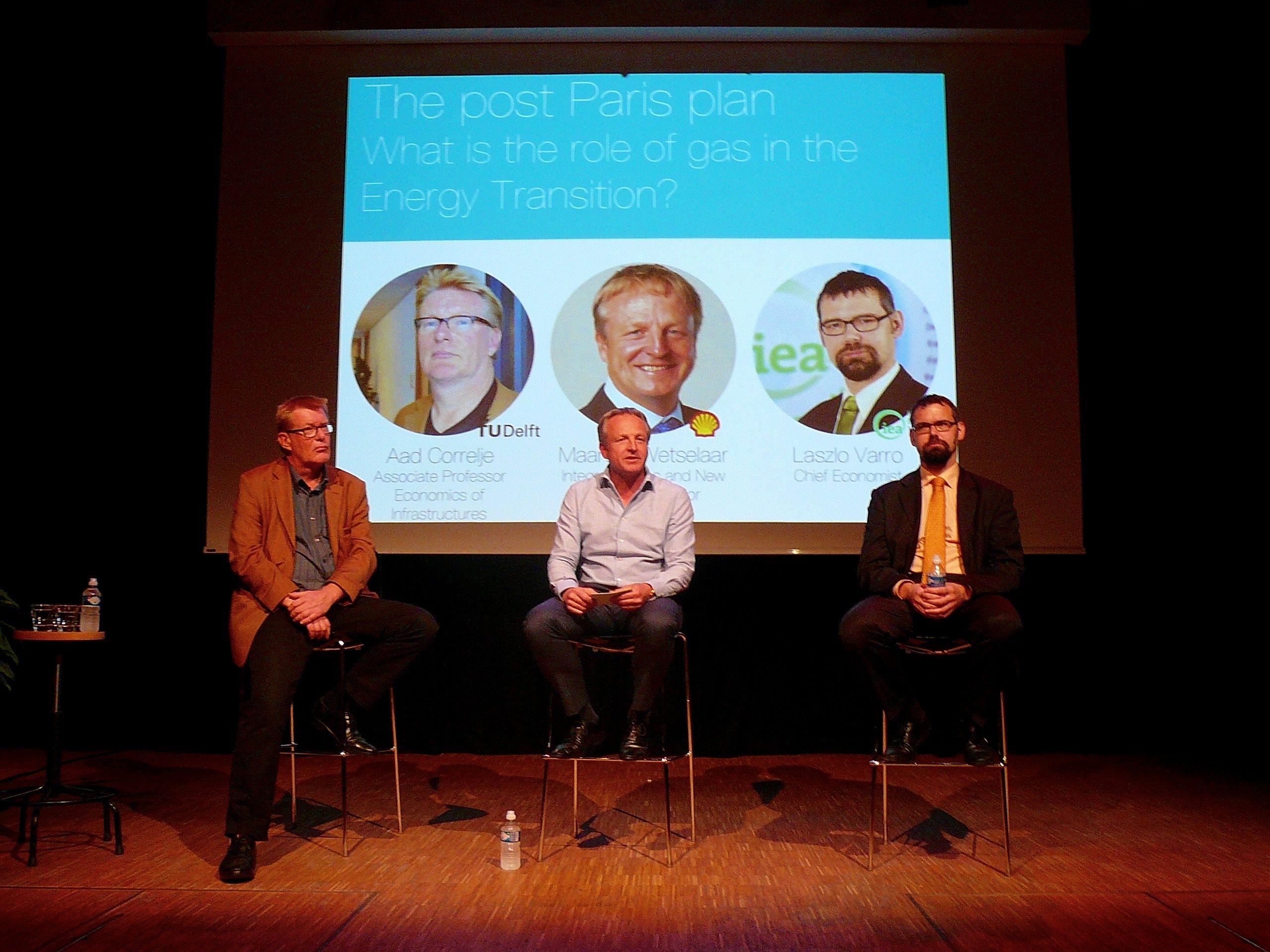Even if Europe pushes renewable energy to the max and tops its energy efficiencies, it will still be importing gas for the next 25 years.
This summarising prediction came from Dr. Laszlo Varro, chief-economist with the International Energy Agency IEA. He said so at the end of the debate on the role of gas in the energy transition on Thursday, September 22, 2016.
The debate entitled ‘The post Paris plan’ was held in the Sports & Culture centre. Other panel members were Maarten Wetselaar, Director Integrated Gas and New Energies (Shell) and Dr. Aad Correlje, Associate Professor economics of infrastructures at the Faculty of Technology, Policy and Management of TU Delft. All seats in the theatre were taken, mostly by students, although the participation was low.
At last year’s climate conference in Paris, Europe agreed to reduce its CO2 emissions to limit global warming to 2 degrees Celsius or less. Since gas emits about half the amount of CO2 compared to coal (for the same amount of heat) it seems to make sense to choose natural gas as the preferred fossil fuel. Besides, gas-fired power plants can quickly be fired up if the production from wind parks falls short of the projections. Coal plants are more suited to provide a steady base-load.
But does gas indeed half the emissions? That was the first question in the debate. Since methane is a potent greenhouse gas, small leakages will offset any climate benefit. Wetselaar agreed that about 2% is lost in the US shale gas extraction. He also mentioned 8% as the break-even point. Correlje added that the environmental rules on gas production should be tightened and enforced for gas to have a climate benefit.
Another question addressed the role of biogas. The speakers agreed that there is room for growth from the current 3%. But if biogas is produced from waste streams only, including sewage streams, the maximum share is about 10-12%. So, in all cases, the role of biogas remains pretty limited.
Under the moderation of Professor Jan Dirk Jansen (Faculty of Civil Engineering and Geosciences), the panel concluded that Europe would be using gas in partnership with a growing share of renewable energy for the next two decades. Gas will come both from Russia by pipeline and from Asia or the US by ship in the form of LNG (liquefied natural gas).
The audience was quiet, despite the large turnout. That was probably due to the complex formulations of propositions that forced one to choose between A or B. What if you don’t agree with either of them? Simple choosing in favour or against offers more freedom for debate. And the only time the debate seemed to get lively (a student protested against the fossil backgrounds of the panel members), Jansen cut the discussion short. Thus, the meeting became more of a lecture than a debate, albeit a well-informed one.



Comments are closed.